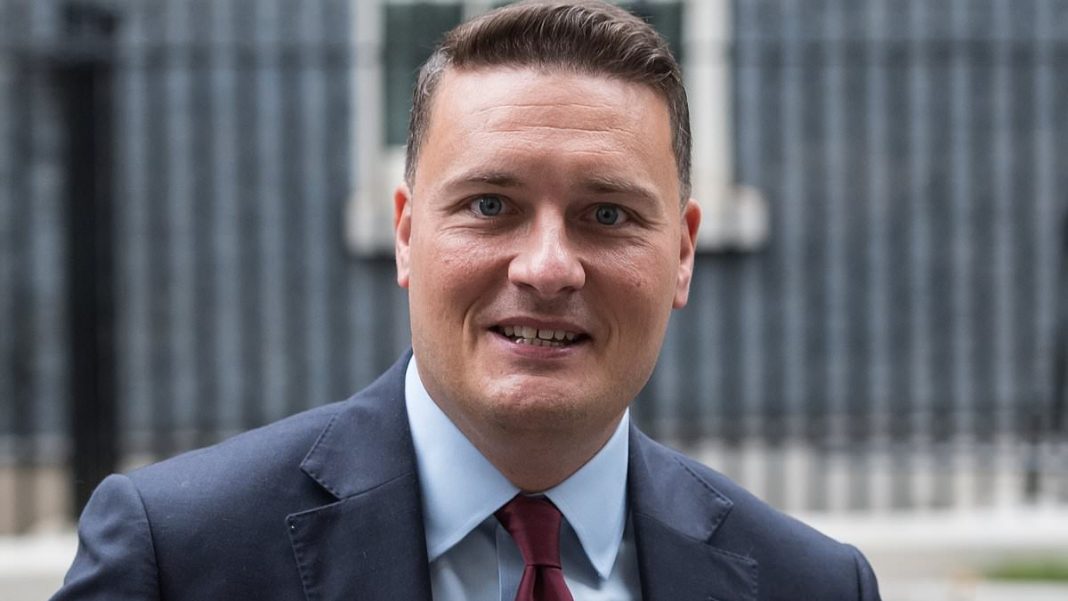The Health Secretary has warned that legalising assisted dying could take NHS money away from medical treatment for the living.
Wes Streeting, who opposed the suicide law change passed by MPs last week, said getting the system up and running would take ‘time and money’ away from other parts of the health service.
He said that said better end-of-life care was needed to prevent terminally ill people feeling they had no alternative but to end their own life.
MPs on Friday voted by a majority of just 23 to allow medical professionals to help people die, under a system expected to start operating by the end of the decade.
But having been passed by the Commons the legislation faces a tricky passage through the Lords, which calls for them to either make major changes or block it altogether.
Mr Streeting, writing on his Facebook page, said he could not ignore the concerns ‘about the risks that come with this Bill’ raised by the Royal College of Psychiatrists, the Royal College of Physicians, the Association for Palliative Medicine and charities representing under-privileged groups.
He cited a warning from ex-PM Gordon Brown that ‘there is no effective freedom to choose’ if there is no high quality palliative care available, or if people ‘feel under pressure to relieve their relatives of the burden of caring for them’.
‘He is right. The truth is that creating those conditions will take time and money,’ Mr Streeting wrote.
‘Even with the savings that might come from assisted dying if people take up the service – and it feels uncomfortable talking about savings in this context to be honest – setting up this service will also take time and money that is in short supply.
‘There isn’t a budget for this. Politics is about prioritising. It is a daily series of choices and trade-offs. I fear we’ve made the wrong one.’
The Government is neutral on the Terminally Ill Adults (End of Life) Bill which cleared the Commons with a majority of 23 votes on Friday.
Mr Streeting said his Department of Health and Social Care ‘will continue to work constructively with Parliament to assist on technical aspects of the Bill’ as it goes through the House of Lords.
Last week assisted dying campaigner Dame Esther Rantzen urged peers not to block the landmark legislation.
Dame Esther told BBC Radio 4’s Today programme: ‘I don’t need to teach the House of Lords how to do their job.
‘They know it very well, and they know that laws are produced by the elected chamber.
‘Their job is to scrutinise, to ask questions, but not to oppose.
‘So yes, people who are adamantly opposed to this Bill, and they have a perfect right to oppose it, will try and stop it going through the Lords, but the Lords themselves, their duty is to make sure that law is actually created by the elected chamber, which is the House of Commons who have voted this through.’
Dame Esther, who turns 85 on Sunday and has terminal cancer, acknowledged the legislation would probably not become law in time for her to use it and she would have to ‘buzz off to Zurich’ to use the Dignitas clinic.
Paralympian and crossbench peer Baroness Tanni Grey-Thompson told BBC Breakfast: ‘We’re getting ready for it to come to the Lords and from my personal point of view, about amending it to make it stronger.
‘We’ve been told it’s the strongest Bill in the world, but to be honest, it’s not a very high bar for other legislation.
‘So I do think there are a lot more safeguards that could be put in.’
Conservative peer and disability rights campaigner Lord Shinkwin said the narrow Commons majority underlined the need for peers to take a close look at the legislation.
He told Today ‘I think the House of Lords has a duty to expose and to subject this Bill to forensic scrutiny’ but ‘I don’t think it’s a question of blocking it so much as performing our duty as a revising chamber’.
Lord Shinkwin added: ‘The margin yesterday was so close that many MPs would appreciate the opportunity to look at this again in respect of safeguards as they relate to those who feel vulnerable, whether that’s disabled people or older people.’
Labour MP Kim Leadbeater, who steered the Bill through the Commons, said she hoped peers would not seek to derail the legislation, which could run out of parliamentary time if it is held up in the Lords.
She said: ‘I would be upset to think that anybody was playing games with such an important and such an emotional issue.’






